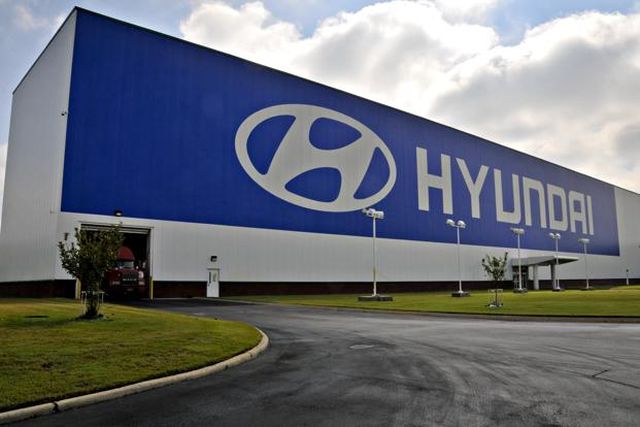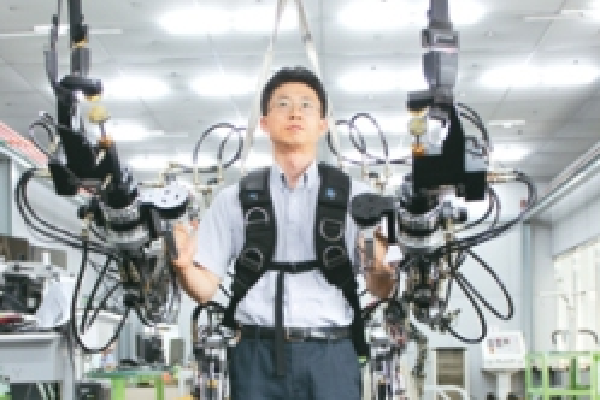
Hyundai thinking smartly about the future of travel
DUBAI |By Bang Sun Jeong
Technology has significantly transformed the automotive industry so much that the way we travel in the future will not be the same as how it is today.
We are already seeing this revolution with almost all vehicles today integrated with advanced safety and entertainment systems that enhances the journey of millions of consumers.
With new trends such as autonomous vehicles and shared mobility set to hit the roads in the coming years as well as the surge of electric vehicles, travelling from point A to B will no longer be ordinary. It will have wide-ranging beneficial effects for not just the consumers but for also cities and towns.
For example, autonomous vehicles can pave the way for reducing traffic while shared transport will make commuting even more affordable. Electric vehicles, which are already widely driven worldwide, are an obvious choice for improving local air quality and thus drastically cutting pollution.
A lot of extensive work and research still needs to be undertaken before we are able to fully experience autonomous vehicles and shared mobility on a daily basis. Yet, these innovations are an encouraging sign of a fundamental shift to serving to the needs of consumers.
It is clear that delivering vehicles for the future will not just be about design and luxury. Consumers will want vehicles that are intelligent and connected so that travelling becomes simpler and safer. They need to be excited about the opportunity of adopting a new mode of transport and not be worried about the potential drawbacks.
As an established global automaker, Hyundai Motor Company is committed to providing smart mobility solutions through new technologies. This has driven us to come up with strategies with the focus on enriching people’s lives and achieving progress for humanity.
Whether it is finding better ways to move around, reducing environmental impact or increasing productivity, we are looking at the wider picture of creating a meaningful change to travelling.
This was demonstrated well at CES 2020 earlier this year when Hyundai revealed its innovative human-centered vision, reinforcing the company’s mission to become a Smart Mobility Solution Provider.
Urban Air Mobility (UAM), which connects the sky and ground, Purpose Built Vehicles (PBV) and the Hub (Mobility Transit Base) are three smart mobility solutions that we believe will free future cities and people from constraints and time that will enable them to create more value to their lives.
Hyundai is already one step ahead on this journey by forming an aerial ridesharing partnership with Uber.
As the first automotive company to join the Uber Elevate initiative, Hyundai will produce and deploy the air vehicles with our state-of-the-art technology. UAM is expected to transform ridesharing trips and urban transportation as a new mode of transport.
This is a significant move that shows Hyundai’s vision for future mobility as a Smart Mobility Solution Provider.
But for consumers to embrace the different forms of travelling, it would require collaboration from organisations across different industries to implement these innovative ideas and ensure the infrastructure is in place.
With the Internet of Things (IoT) playing an integral role in everyday life, the transport infrastructure is a vital component of a city’s growth that can help save millions and protect the environment for the better.
Unfortunately, the world has slowed down temporarily due to the Covid-19 pandemic that has affected all industries. People are now rethinking ways to commute to work or to meet friends in the post-Covid-19 era.
The current health concerns will make public transport a less desirable option, with more people opting for shared mobility and electric vehicles instead.
Despite these unprecedented times, Hyundai Motor will continue to invest in future technologies, including autonomous driving, artificial intelligence, smart cities, new materials, robotics and developing efficient sources of green energy.
In the automotive industry’s race toward progress, Hyundai Motor is keeping a strong pace to take the lead. Hyundai’s innovations will go beyond automotive technology and into smart mobility solutions, making meaningful progress for humanity.
About the author
Bang Sun Jeong is Vice President, Head of Middle East & Africa Operation at Hyundai Motor Company



